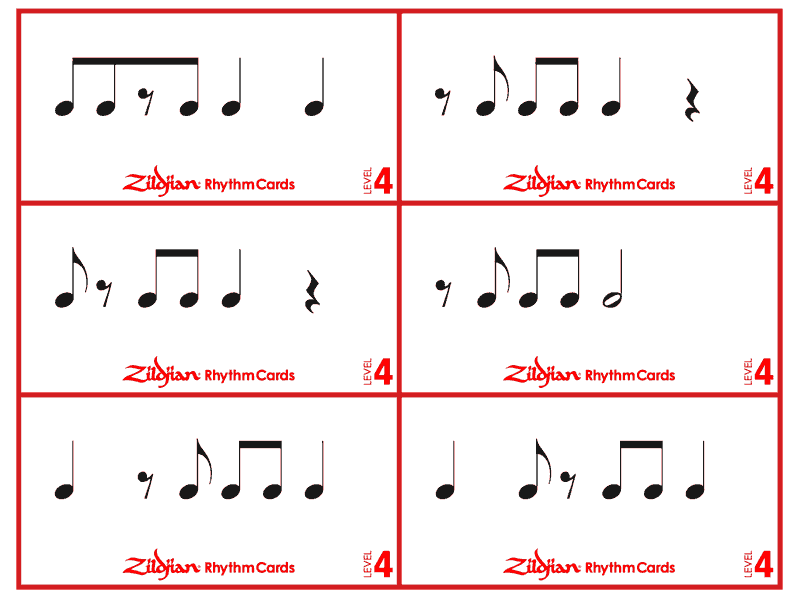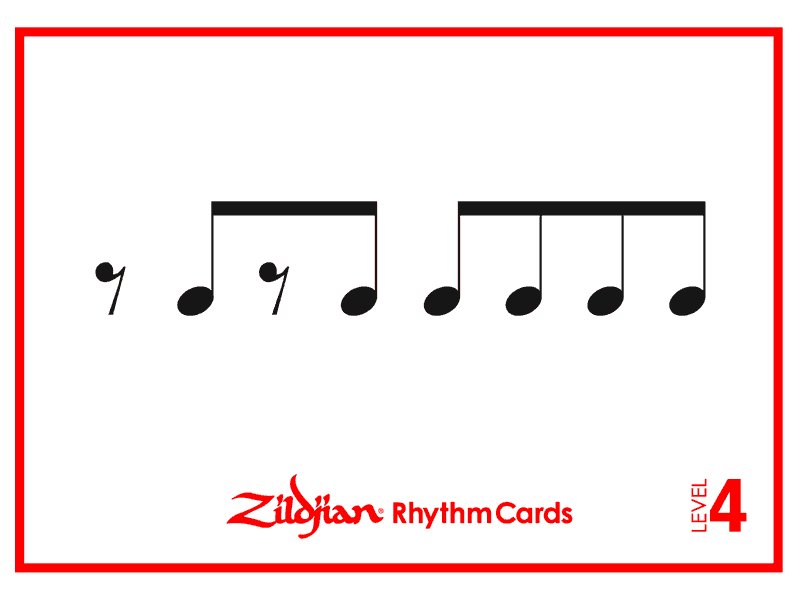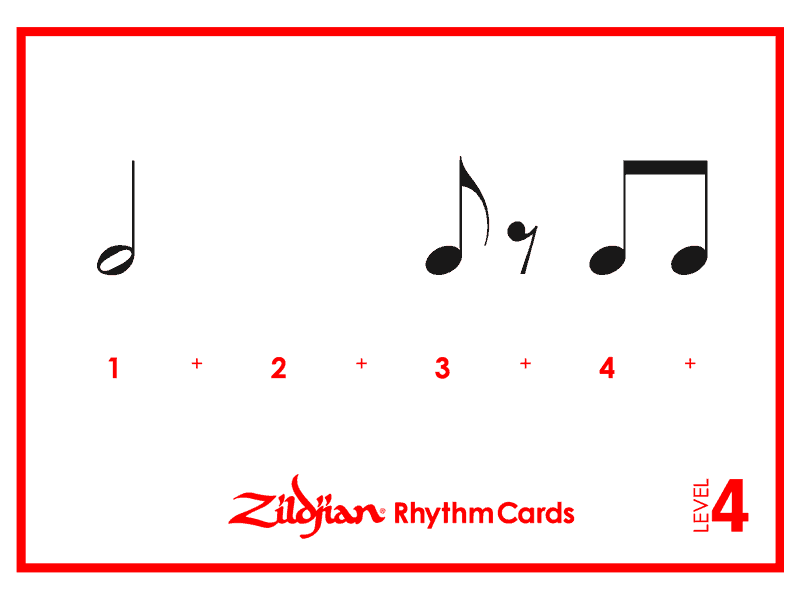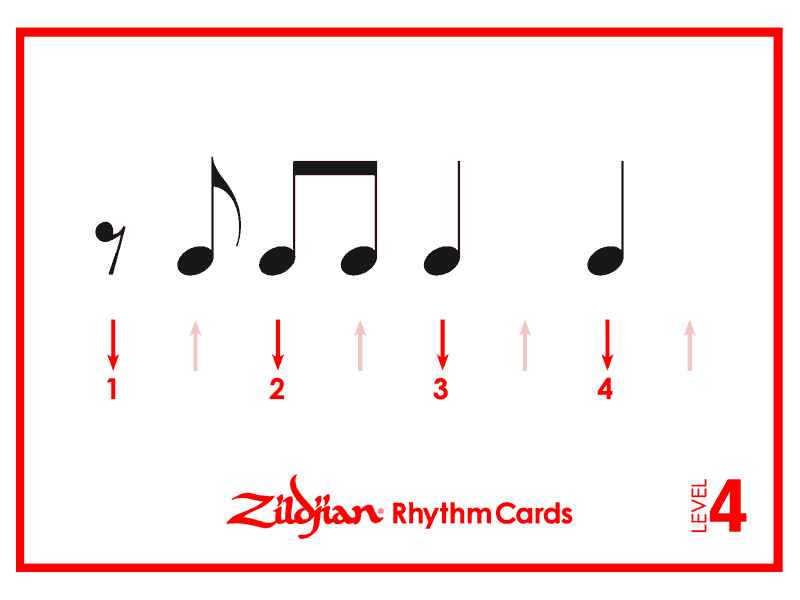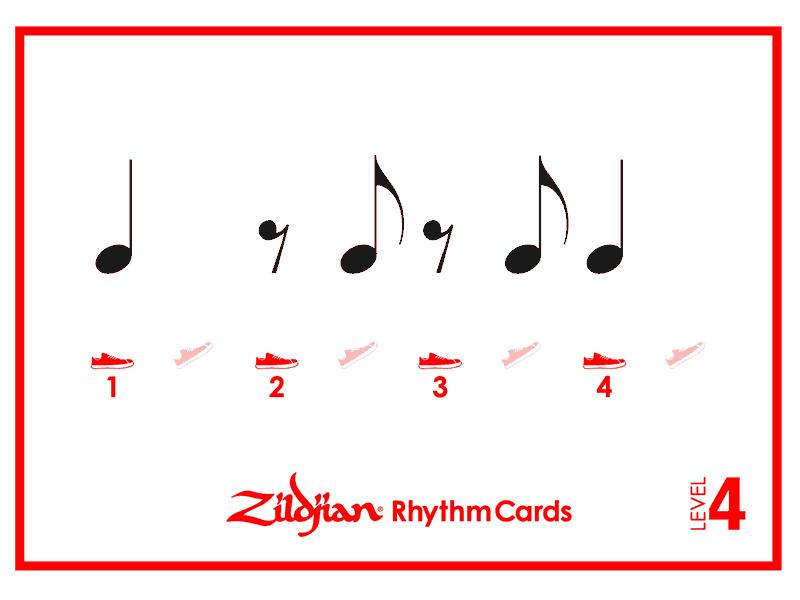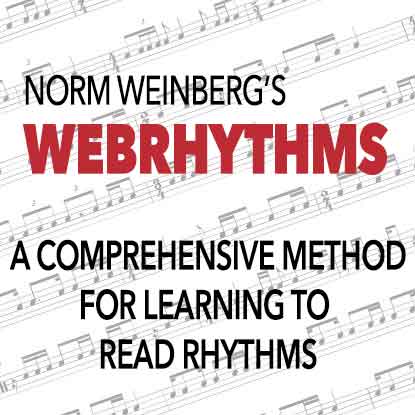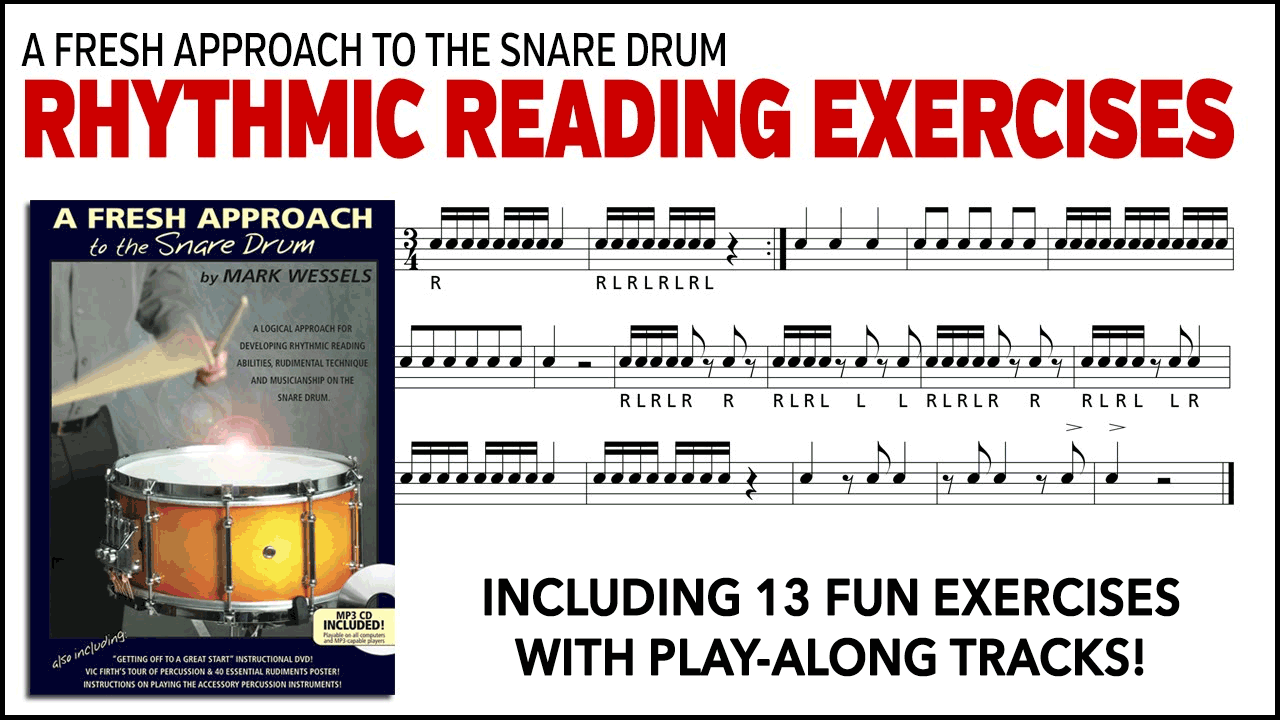Zildjian Rhythm Cards Level 4
THIS LEVEL COVERS THE FOLLOWING NOTE VALUES AND RHYTHMIC CONCEPTS:
Eighth Notes, Quarter Notes and Half Notes with Ties
PLAY-ALONG VIDEOS
These videos are designed to cover all of the note values and rhythmic concepts included in this level in a graduated series of difficulty. Not only does the tempo increase for each level, but the rhythmic combinations get more difficult as you work through them! Don’t forget that you can change the SPEED of the video using the settings icon in the video playbar.
PLATINUM AND DIAMOND
This video is designed to be a challenge for intermediate to advanced students. There are SEVEN measures of the most difficult rhythmic combinations in this level at a fast & extremely fast tempo (with a one measure transition between cards). Beginning to Intermediate students may wish to skip this and move on to Level Five!
PLATINUM AND DIAMOND WITHOUT ACCOMPANIMENT TRACK:
DOWNLOADABLE RESOURCES FOR TEACHERS:
While utilizing the videos in your classroom may be a fun way to liven up your curriculum, you also may wish to download the printable PDFs to create ‘cards’ for your students, allowing you to teach each rhythm or concept individually – or to “shuffle” them and create competitive games between groups of students! Here are several options to select from:
Download, print and cut out each of the ‘measures’ to create a deck of cards that you can use with individual students! Shuffle the deck and deal the cards for quick thinking challenges. Create a competition between several players by dealing several cards on a music stand and awarding points for each measure counted or played correctly! Print each level of cards on different colored card stock and assign point values based on each level. You’re only limited by your imagination!
Download, print and cut out each of the ‘measures’ to create a deck of cards that you can use with individual students! Shuffle the deck and deal the cards for quick thinking challenges. Create a competition between several players by dealing several cards on a music stand and awarding points for each measure counted or played correctly! Print each level of cards on different colored card stock and assign point values based on each level. You’re only limited by your imagination!
MORE OPTIONS TO HELP STUDENTS:
ONE CARD PER PAGE WITH COUNTS, ARROWS OR TOE TAPS
These cards may be helpful when teaching the 8th note subdivision of the rhythm patterns. Click the image to download a PDF the cards with either counts written in under the notes, down-up arrows or toe-taps to demonstrate downbeat/upbeat relationships of the rhythms included!
OTHER RESOURCES YOU MIGHT FIND USEFUL:
WebRhythms is a series of short articles designed to teach rhythmic reading. Each article includes musical examples that help explain the conceptsand an exercise that tests your new reading skills. Along with the written materials, WebRhythms allows you to download and print a copy of each exercise and provides a computer-perfect MIDI performance at a number of different tempi. With all these materials, it’s easy to be creative and challenge yourself while you learn or improve your reading ability.
If you’re a novice at reading music, these articles will start you off by building a solid foundation. Those of you with strong reading skills can use these lessons to brush up and polish what you already know. The later lessons may even show you some new rhythmic ideas and procedures. Monster readers can take the Pro Challenge. Do you have what it takes to keep up?
The videos in this YouTube playlist include logically paced studies that are perfect for percussionists AND non-percussionists — and can be frequently used in any music classroom for a fun rhythm training activity!
Starting from the very beginning and progressing through 8th/16th note combinations, it’s easy to test your skills as you play along with some great percussion tracks!


